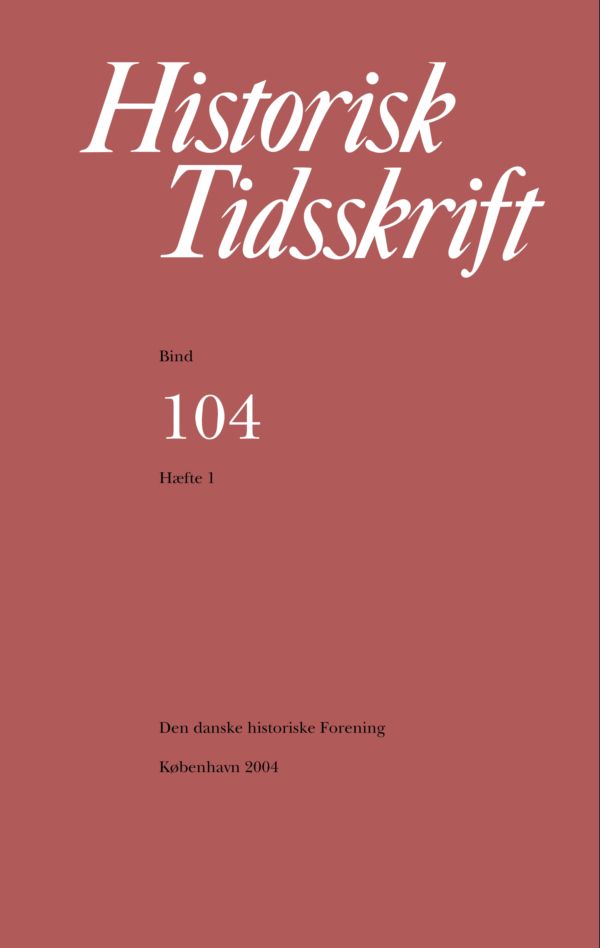Dansk europapolitik og nordisk samarbejde
Resumé
Denmark's European Policy and Nordic Cooperation 1967-68On 11th May 1967 Denmark applied for membership of The European Economic Community (EEC). However, the enlargement effort was de facto put on hold already on 16th May 1967 due to the French president de Gaulle's statement closely corresponding to a veto. This resulted in drafting of a plan in The Danish Foreign Ministry to handle a situation where the enlargement was put off at least until 1972. The plan was first drafted on 31st May 1967 by a small number of civil servants in the Ministry's Office for Market Affairs (Markedssekretariatet). The plan was to establish a Nordic Union ad modum the EEC amongst primarily Denmark, Norway and Sweden and have Finland and Island connected to it with a special arrangement. The Nordic Union was meant to be a supranational organisation aimed at becoming a member of the EEC when the opportunity for enlargement again surfaced. Alongside the draft of a plan to establish a Nordic Union, the plan was seen as an opportunity to cut off the strong public opinion which wanted a Nordic cooperation instead of a membership of the EEC. In Markedssekretariatet the idea was that if the Nordic Union plan was made public but failed it would no longer constitute an alternative to the EEC. This would be advantageous for strengthening the public opinion in favour of an EEC-membership. The elaboration was made just a few days before a high official in the Foreign Ministry for the first time in July 1967 confronted the Prime Minister and Foreign Minister, Jens Otto Krag, with the plan. It was decided between Krag and high officials to put off the implementation of the plan until a final veto locked down the enlargement of the EEC. The plan to implement the Nordic Union was put on rails by Markedssekretariatet in the last part of November 1967 when the final veto was made by de Gaulle on 27th November 1967 which was repeated and emphasised in the middle of December 1967. The Plan was then first made public as part of the Social Democratic Party programme during the election campaign in January 1968, but did not make headlines. After the election the new liberal government adopted the plan, which Markedssekretariatet had masterminded and tabled it at the Nordic Council meeting in Oslo on 17th February 1968. This led to two years of negotiations on how to establish the close Nordic cooperation, which was named Nordek. The Nordek plan was turned down in March 1970 by Finland, at a time when Denmark besides the Nordek negotiations also was in close contact with the EEC in order to become a member. This contact led to negotiations and a Danish referendum on membership of the EEC in October 1972, which in spite of a significant anti-EEC opinion became a vote for Danish EEC-membership. The main conclusion in the article is that Markedssekretariatet and the initiative to establish a Nordic Union played a very significant and influential role in the Danish market-policy in favour for EEC-membership.Downloads
Publiceret
Citation/Eksport
Nummer
Sektion
Licens
Ophavsret til bidrag i Historisk Tidsskrift tilhører forfatterne og Den danske historiske Forening som udgiver af Historisk Tidsskrift. For illustrationer gælder den ophavsret, som står anført i billedteksten. Ophavsretslovens almindelige bestemmelser gælder, hvilket vil sige, at ophavsretten gælder i 70 år efter forfatterens død. Bidrag i Historisk Tidsskrift må derfor, med forbehold for en ”moving wall” på tre år, frit downloades, læses, gemmes, anvendes og citeres (med kildeangivelse) i privat og videnskabelig sammenhæng, men de må ikke helt eller delvis genudgives af tredjepart, heller ikke i redigeret form, uden tilladelse fra forfatterne og Den danske historiske Forening. Henvendelse skal i så fald rettes til Historisk Tidsskrifts redaktion på histtid@hum.ku.dk.





